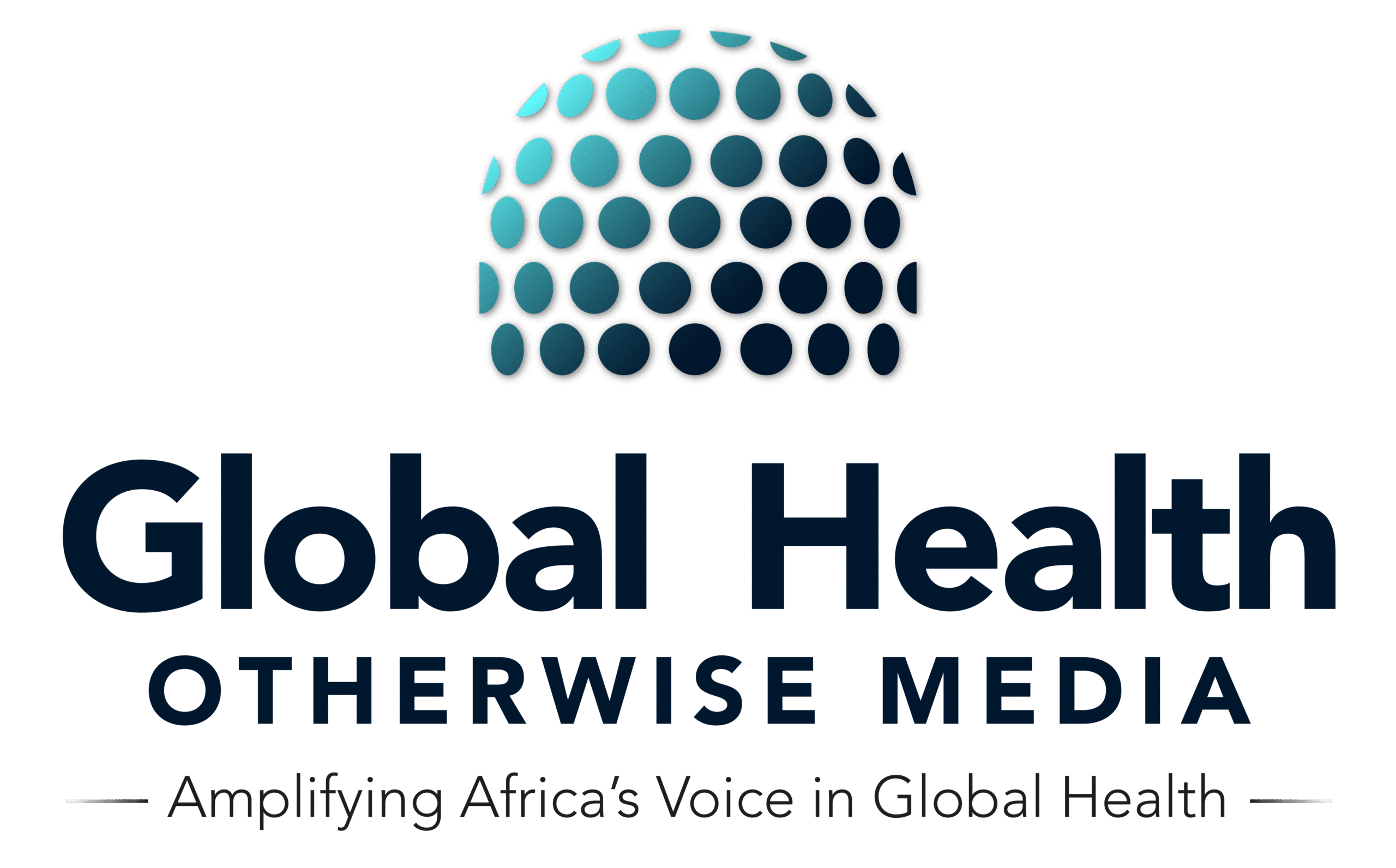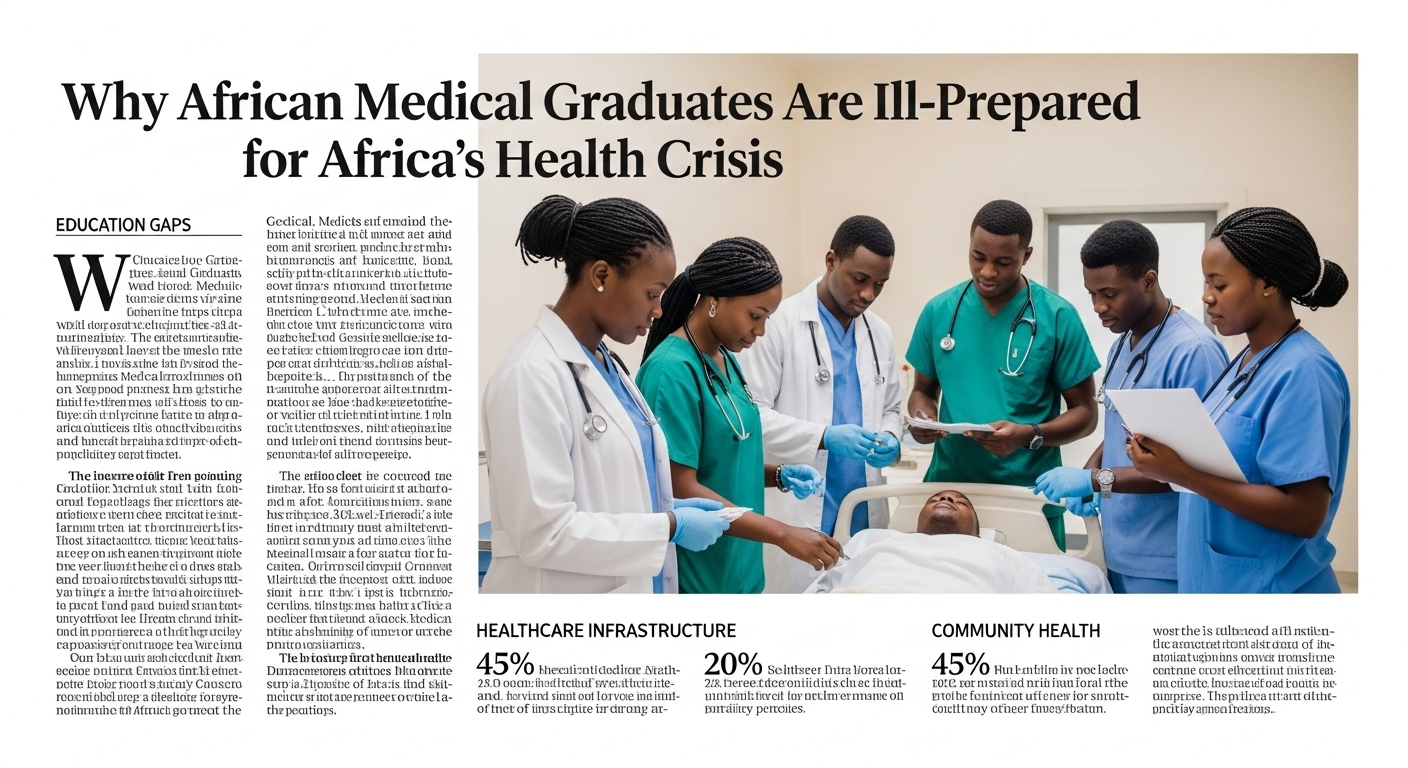In the heart of Kano State, northern Nigeria, Dr. Amara Okafor, a young doctor who graduated top of her class from the University of Lagos Medical School, faces a harsh reality she had never been trained for. She could diagnose a heart murmur in seconds, stitch a wound flawlessly, and recite pharmacology like poetry. However, nothing in her six years of training prepared her for a clinic with no electricity, no running water, and only paracetamol on the pharmacy shelf.
Her patients were not battling rare or mysterious diseases that required cutting-edge diagnostics. They were fighting common illnesses such as malaria, diarrhea from contaminated water, and malnutrition. These were not clinical puzzles; they were cries for clean water, sanitation, and nutritious food.
Dr. Okafor’s education had equipped her to treat symptoms, not address root causes. She could write a prescription for typhoid but had never learned to lead a village clean water campaign or organize a door-to-door health outreach. Her training focused on response, not prevention, a glaring flaw in Africa’s medical education that leaves healthcare systems ill-prepared to address the continent’s unique challenges. This disconnect between training and reality is more than an academic issue; it reflects a lingering legacy of colonialism that continues to hinder Africa’s healthcare transformation.
The Transplanted Curriculum Problem
African school curricula, particularly in medical training, were never designed with Africa in mind. Medical schools across the continent still follow blueprints inherited from European institutions in the 1960s and 70s; programs built for environments with reliable electricity, abundant resources, and health concerns very different from Africa’s.
At Makerere University Medical School for example, early qualifications were Licentiates recognized by the General Medical Council of the UK. British colonial policy ensured that colonial colleges aligned their training with London’s needs, not those of Lagos or other African cities.
As a result, medical students in Lagos spend months learning about rare diseases that affect fewer than 1 in 100,000 people, while receiving minimal training on malaria, which killed 597,000 people in 2023 across Africa. This curriculum mismatch creates a triple disconnect; students learn about diseases they rarely encounter, treatments they cannot afford, and healthcare delivery models that do not exist in their communities.
Individual Patients, Broken Systems
This educational mismatch primarily focuses on treating individual patients rather than preventing the diseases that send them to hospitals in the first place. Malaria, for example, remains entirely preventable, yet students learn to identify parasites and prescribe antimalarial drugs without being taught how to design mosquito control initiatives.
Similarly, students study tuberculosis treatment but are not trained on how to address the overcrowded housing that facilitates the disease’s spread. They learn about maternal mortality but are not taught how to collaborate with traditional birth attendants or set up referral systems. This narrow focus produces doctors who can treat symptoms but lack the skills to tackle the root causes of health crises. Given that about 57% of Africa’s population still lives in rural areas with limited hospital access, this approach is a fundamental failure.
The Hospital-Centered Training Trap
African medical education deepens the urban-rural disconnect by concentrating clinical training in tertiary hospitals that serve only a small portion of the population. Students spend years learning to use advanced diagnostic tools like CT scanners and cardiac monitors, equipment unavailable in the majority of rural clinics. As a result, they graduate confident in high-tech care but unprepared to make frontline decisions with limited tools, relying on little more than a stethoscope and their clinical judgment.
This mindset is further reinforced by rigid curricula that discourage problem-solving and innovation. Indigenous knowledge is sidelined, experimentation is discouraged, and culturally relevant healthcare practices are dismissed. Traditional healers, who provide care to a significant portion of the population are seen as unscientific rather than potential partners in healthcare delivery. This creates a generation of healthcare providers who view African practices as primitive, rather than solutions to be studied and refined.
To build healthcare systems that serve Africa, medical education must evolve to embrace local realities. Curricula should prioritize community-based care, prevention, and the integration of indigenous knowledge. Medical education must move beyond replicating imported models and instead cultivate local solutions, rooted in context.
Imagine a system where students spend their first year not buried in textbooks but immersed in communities, understanding how poverty, environment, and culture impact health. They could work alongside traditional healers, community health workers, and local leaders, gaining not only medical knowledge but cultural understanding and empathy. Medical education should emphasize prevention, community systems, and local innovation.
In Botswana, medical students are required to spend six months in rural communities before graduation. The University of Ghana has integrated traditional healers into formal training programs, encouraging students to engage with indigenous practices. These initiatives are a step in the right direction.
Africa’s healthcare challenges require leaders who understand how to build systems from the ground up. Graduates should be capable of designing primary healthcare networks, managing supply chains for rural clinics, and developing solutions for resource-constrained settings. They should see themselves not just as doctors but as public health strategists, system builders, and community leaders.
The transformation starts in university classrooms. By aligning medical education with Africa’s realities, universities can produce graduates who are not just clinically competent but systemically capable, doctors who treat diseases and build healthier communities.
Dr. Okafor eventually found her way. After completing a public health degree, she now runs a successful community health program in northern Nigeria. But she had to unlearn much of her medical school training to be effective. The next generation of African healthcare providers deserves better. They deserve an education tailored to the Africa they will serve, not the Europe their curricula remember.

